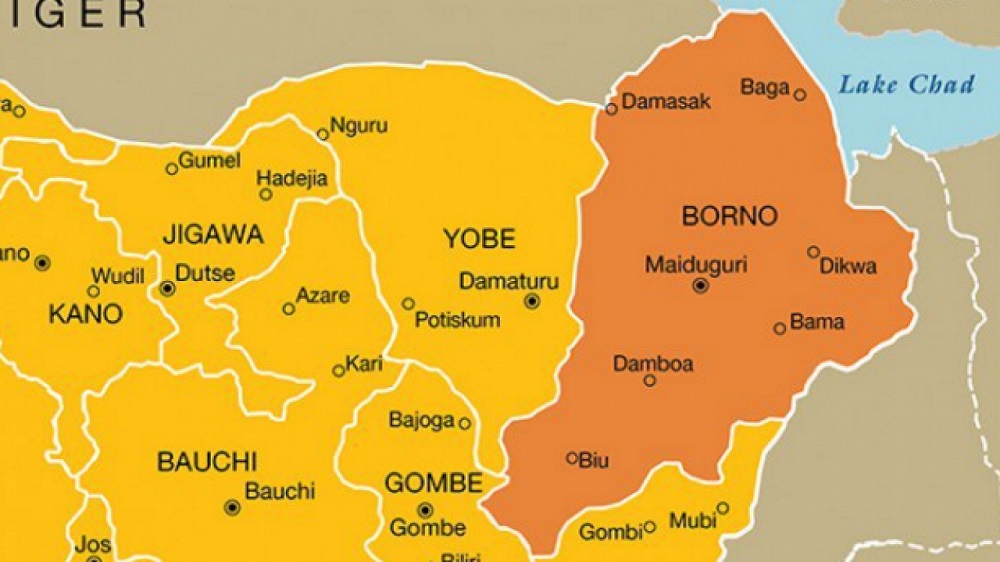News
BudgIT decries extension of 2023 budgets to December 2024

By Kayode Sanni-Arewa
BudgIT, a leading civic-tech organisation promoting transparency, accountability, and effective service delivery in Nigeria, has decried the proposed elongation of the implementation period for the 2023 Approved Budget and 2023 Supplementary Budget from the proposed termination date of December 31, 2023, to December 31, 2024.
The organisation described the proposed running of all the budgets simultaneously as an anomaly with no precedence. It would be recalled that the 2023 Approved Budget of N21.83 trillion, signed into law by President Muhammadu Buhari in January 2023, was designed to run for 12 calendar months from January to December, as is the practice globally. In addition, while the 2024 Appropriation Bill was being drafted, the 2023 Supplementary Budget of N2.17 trillion was passed by the National Assembly and assented to by President Bola Ahmed Tinubu barely two months before the end of the 2023 fiscal year.
For a brief period, Nigeria returned to the January – December budget calendar in 2019 but retrogressed from the 2020 fiscal year. From 2020 to date, the Federal Government has routinely extended the implementation period for the capital budgets beyond 12 calendar months—a practice that negates the principle of annuality of public budgets. The National Assembly had initially extended the implementation of the 2023 Approved Budget and 2023 Supplementary Budget to June 30, 2024, and now to December 31, 2024. If allowed to be implemented, the practice would convert Nigeria’s annual budget into a biennial one, a practice neither provided for by the 1999 Constitution nor the Fiscal Responsibility Act of 2007.
More worrisome is the fact that the Federal Government is currently drafting another 2024 Supplementary budget, which it intends to implement alongside the 2023 Approved Budget, 2023 Supplementary Budget and 2024 Approved Budget, thereby resulting in the simultaneous implementation of four budgets—an anomaly with no precedence. Standard practice should be that projects not catered to within a fiscal year are rolled over to the budget of a new fiscal year.
“The concurrent implementation of four budgets will lead to severe budget credibility issues, as revenues projected in 2024 alone would most likely be used in implementing four different budgets, negatively impacting service delivery in critical social sectors and the provision of essential public infrastructure”, said Gabriel Okeowo, BudgIT’s Country Director.
BudgIT identified many frivolous items in the 2023 Approved Budget and 2023 Supplementary Budget that will compete with essential projects in the 2024 Budget for the meagre resources available to the Federal Government.
Okeowo has therefore called on the Federal Government and the National Assembly to amend the complications of this convulated budgeting system and return to a disciplined January to December Budget Calendar.
“We also urge the Federal Government to identify and implement only the projects and programmes that align with Nigeria’s overarching development goals, reduce inequality, and improve the lives of citizens, the bulk of whom are multi dimensionally poor,” he said.
News
TETFUND threatens to cut financial support to non-performing institutions

The Tertiary Education Trust Fund (TETFUND) has threatened to cut financial support to beneficiary tertiary institutions that fail to meet performance benchmarks or mismanage allocated funds.
The agency said it would de-list such tertiary institutions from its support programmes.
Executive Secretary of TETFUND, Sonny Echono gave the warning at a one-day strategic engagement with heads of institutions, bursars, and heads of procurement of the agency’s beneficiary institutions in Abuja on Monday.
Echono said the policy was not meant to punish, but rather safeguard the credibility and impact of TETFUND interventions.
He said: “Let me be clear, institutions that consistently fail to access, utilise or retire funds appropriately, or that fall short of enrollment and academic performance thresholds, risk being delisted as TETFUND beneficiary institutions.”
He also disclosed the intention of TETFUND to ensure that its resources were directed towards institutions that were committed to high standards of governance, transparency, and accountability.
Echono said the strategic engagement was targeted at addressing recurring challenges in Nigeria’s tertiary education sector, improving project execution, and enhancing the quality of education.
A key focus, he said, was the Academic Staff Training and Development (AST&D) intervention.
He said due to rising costs and incidents of scholars absconding, the foreign component of the TETFUND Scholarship for Academic Staff (TSAS) was suspended as of January 1, 2025 with emphasis now shifted to cost-effective, locally driven training.
Echono said this year’s intervention budget prioritises consolidation, sustainability, and the completion of abandoned projects.
He added: “This engagement is not merely a meeting but a strategic convergence. It is designed to address recurring issues of concern, streamline project implementation, and enhance the overall quality of tertiary education delivery in our nation.
“As we move forward, let us approach today’s discussions with openness, collaboration, and a shared vision to elevate our institutions and the students we serve.
“Together, we can strengthen accountability, drive innovation, and ensure that the legacy of TETFUND remains impactful, equitable and enduring for generations to come.”
Executive Secretary of the National Universities Commission (NUC), Professor Abdullahi Ribadu emphasised the importance of the meeting for evaluating the implementation and impact of TETFUND – supported projects in higher education institutions.
The NUC chief, who was represented by Dr. Joshua Atah appreciated TETFUND’s vital role in improving infrastructure, research, staff development, and academic quality, stating that without its support, public education would struggle to survive.
Prof. Ribadu acknowledged the adaptability of TETFUND’s policies, such as suspending international scholarships to reallocate resources more effectively.
He urged tertiary institutions to be more responsive and ensure that interventions were relevant and efficiently executed.
Ribadu encouraged judicious and timely use of funds and called for open and constructive dialogue during the engagement.
“This calls for greater responsiveness also on the part of the institutions. This responsiveness also includes the areas of the design and implementation of these interventions to ensure that they remain relevant, impactful, and aligned with the future of education in Nigeria.
“It’s also important that we judiciously utilise these resources, and not just judicious utilisation but also in a timely manner so that we don’t lose the fund,” he said.
News
Again, Boko Haram reportedly attack military base in Borno

Suspected Boko Haram terrorists have attacked a Nigerian Army base in Marte , the headquarters of Marte Local Government Area of Borno State with casualties
The terrorists attacked the 153 Task Force Battalion’s Forward Operation Base (FOab) at around 3am on Monday, according to the locals and security sources.
They said the terrorists also burnt armoured tanks and seized arms and ammunition from the base during the attack.
“ISWAP has taken over Marte. An unspecified number of soldiers were killed, some captured, and many others fled towards Dikwa.
“They are currently at the 24 Task Force Brigade in Dikwa,” a source said.
Recent terrorist attacks have targeted several military formations in Borno and Yobe, including Sabon Gari and Buni Yadi, with the latest being the attack on the 153 Task Force Battalion.
Attempts to reach Maj-Gen Markus Kangye, Director of Defence Media Operations, were unsuccessful as he didn’t answer calls or respond to text messages.
News
Taraba Woos Global Investors Ahead of Landmark Economic Summit

…Taravest 2025 to Unlock Opportunities in agric, energy, mining
…as state offers peace, resources, incentives
By Gloria Ikibah
The Federal Government and Government of Taraba State have called on the international community and private sector players to partner with Taraba in unlocking the state’s massive investment potentials across agriculture, energy, mining, and tourism.
This call comes ahead of the Taraba International Investment Summit (Taravest), with the theme: “Unlocking Taraba’s Investment Potentials, Advancing Agriculture, Energy, Mining and Industrialization for sustainable development “, scheduled for May 21, 2025, in Jalingo, Taraba state.
Speaking at the diplomatic preparatory briefing in Abuja, the Minister of Foreign Affairs, Ambassador Yusuf Maitama Tuggar, who was represented by Ambassador Anderson Madubike commended the initiative, describing it as a platform that aligns with Nigeria’s economic diplomacy agenda.

“I wish to commend His Excellency and indeed the Government of Taraba State for convening this timely summit, particularly at this time when the whole world is in need of creating a travelling investment climate through co-location. There is therefore the need for partnership between governments, private sector players, and civil societies,” the Minister stated.
He emphasised that Taravest represents “a collective pursuit of development and prosperity, not only for Taraba State, but indeed for the whole world.
“They have enormous resources—we’re talking about gold, we’re talking about uranium, and many others, and of course agriculture, fertile land, which you know, food, is the way to go”, he added.
Ambassador Madubike noted that the theme for the summit, themed “Unlocking Taraba’s Investment Potentials: Advancing Agriculture, Energy, Mining, and Industrialization for Sustainable Growth,” is expected to attract both local and international stakeholders.
“Our presence here signifies a commitment to making Taraba a model of investment and sustainable development,” he said.
In his address, the Executive Governor of Taraba State, Dr. Agbu Kefas, expressed gratitude to the Federal Ministry of Foreign Affairs and extended an open invitation to diplomats and investors.
Dr. Agbu highlighted the significance of the summit as the first of its kind since the state was created in 1991, and laid out three clear objectives.
“It is my great honor to welcome you to the Paivota Preparatory Meeting for the Taraba State International Investment Summit, Taravest 2025, in just nine days to come.
“To orient you to Taraba’s untapped potentials and the structure of the summit; to inspire your confidence in our security, infrastructure, and business environment; and to enlist your support in rallying investors, technical partners, and development agencies”, the governor said.
He emphasised Taraba’s strategic strengths, citing five core advantages, this is as he reassured guests about the state’s security readiness.

“Peace and security, over 44,000 km² of fertile land for agriculture, massive hydropower and solar capacity, rich mineral reserves including gold, barite, and lithium, and growing opportunities in tourism and the digital economy.
“I want to assure you that we have coordinated with the state security services, the Nigerian military, the Nigerian police, and our traditional rulers… to guarantee your safety”, he added.
The summit, he explained, will feature B2B and B2G matchmaking, policy dialogues, PPP frameworks, and guided site visits to model farms and mining zones.
“Taravest 2025 is more than a conference. It is a statement of fact that Taraba is open for transformative partnership. I invite you to leverage your good offices to mobilize your government and business communities,so that together we will convert promise into progress and unlock a future of shared prosperity”, Dr. Agbu added.
He also urged embassies to submit the names of participating investors and delegates by May 16, 2025, to ease logistics.
Taravest 2025, which will hold at the Banquet Hall of the Government House in Jalingo, aims to attract capital, expertise, and innovation to transform Taraba into a thriving investment destination and economic powerhouse.
-

 News21 hours ago
News21 hours agoJust in: Wike admits Fubara alongside 2 govs visited him on reconciliatory moves
-

 News18 hours ago
News18 hours agoGo home to face corruption probe, protesters in London tell Kyari (Photos)
-

 Economy23 hours ago
Economy23 hours agoSEE Black Market Dollar (USD) To Naira (NGN) Exchange Rate Today 12th May 2025
-

 News24 hours ago
News24 hours agoJapa! UK to End Overseas Care Worker Recruitment to Cut Migration
-

 News21 hours ago
News21 hours agoAMCON, Others Dragged to Court Over Alleged Undervalued Sale of Ibadan Disco for $62m
-

 News24 hours ago
News24 hours agoUS and China Reach Trade Accord Deal After Geneva Talks
-

 News14 hours ago
News14 hours agoUK unions slam Govt’s decision to end care worker visas
-

 News5 hours ago
News5 hours ago2nd Anniversary: Tinubu to commission Abuja International Conference Centre – Wike






